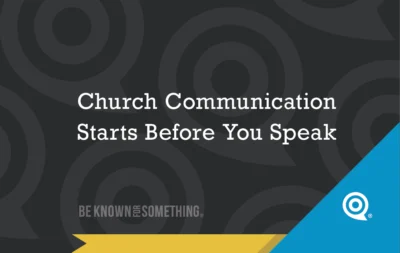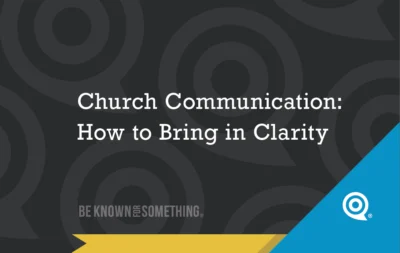Social Media Isn’t Easy: Here are 5 Reasons Why

Church is about fellowship (which by definition is social). And social media is simply a (mostly free) communication channel that has millions of potential followers on it. Because of this, it’s an excellent way to extend your ministry reach while being involved in the daily lives of your members.
So why do many churches struggle with social media? Check out these 5 requirements that make social media management incredibly complex:
- It requires followers. Bonus if they’re engaged! I’m amazed that churches go to the effort of posting when they have very few followers. It’s like a Pastor deciding to preach to an empty room. A church must warrant followers in order to make it worthwhile. Struggle with this? Either your content isn’t right, or your channel isn’t. Fix this before continuing with the other 4 requirements!
- It requires constant content development. Every social channel has an algorithm that pushes content to SOME of your followers. And they are expecting engaging content when they’re scrolling several times a day (although many are considering doing it less because the content doesn’t feel relevant to them). In order to engage and have more people see your posts, you either have to pay to boost… OR create really engaging posts. And once those posts (which could take many minutes to produce) are seen, they’re looking for more from you. And the treadmill continues. Every hour of every day! Relax though, you don’t have to be posting a ton of content. Instead, it just needs to be consistent. Consistently good and engaging. And consistently timely.
- It requires 24/7 monitoring. The most valuable posts have content that your followers want to share. Or like. Or comment on it. The more this engagement happens, the more the channel will push (for free) your content. If no engagement occurs, the post fades and your content stops being pushed. When true engagement happens on a post, you MUST engage back if possible. If someone takes the time to comment, your church needs to be social and timely with a response. This “refreshes” the post and pushes it again as part of the channel’s algorithm. You don’t have to monitor continuously but most channels bonus you if you’re responding quickly.
- It requires leadership (and not support staff). Because of the amount of quality content that needs to be created and responded to, it’s almost impossible for leadership to approve everything (and it’s why most senior leadership doesn’t want the social media job). So usually a support person does it. But support staff need continuous content (see 2 and 3). For success, this ultimately requires the support person to be elevated to a leadership position — to keep this constant mechanism working properly. So they can make decisions without constant oversight. Perhaps the best reason for making the communication role a leadership role!
- It requires a communication strategy. Every church needs to have a strategy for reaching their congregation and community with ministry information. You also need to quiet some voices and amplify others in this strategy. If not? You’re just creating noise on social media that will be ignored.
These are all difficult to resolve! But they must be overcome in order to engage an audience on social media properly. And social media certainly needs our church voice on every one of its channels!
Want 25 Game-Changing Resolutions?
Related Posts

Church Communication Starts Before You Speak
Church communication does not begin with a sermon. Instead, it begins the moment someone arrives on your property. Before a

Church Communication: How to Bring in Clarity
In the new year, pastors often set goals. They want to grow attendance, launch new ministries, or strengthen discipleship. However,

Church Branding: Why Every Church Is Known for Something
Everyone is known for something, including your church. This is the heart of church branding. The real question isn’t whether

